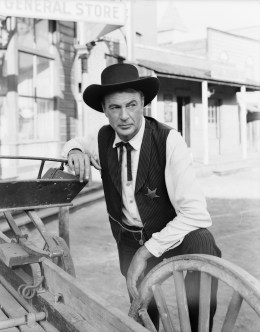
Oscarologists have long described The Greatest Show on Earth as the worst Best Picture winner ever. That’s not entirely fair. Cecil B. DeMille’s circus epic has more than its share of silliness (especially the subplot involving Jimmy Stewart as a fugitive clown), but it also has the grand spectacle DeMille was known for, including a horrific train crash that was a huge influence on the young Steven Spielberg. Still, it’s in no way a better film than High Noon (pictured), which is not only one of the greatest Westerns ever made, but also a then-timely parable warning against McCarthyite anti-communist paranoia.
And that was its undoing. Its screenwriter, Carl Foreman, was one of the Hollywood Ten (the unfriendly witnesses jailed for their refusal to name names of alleged Communists in showbiz before the House Un-American Activities Committee). At the height of the Hollywood blacklist, even staunch conservative Gary Cooper was slurred for starring in the film and voicing support for Foreman. Cooper ultimately walked back his support and ended up winning Best Actor. Meanwhile, no one represented establishment Hollywood more than the virulently anti-Communist DeMille. Grumblers often complain that the Oscars are more about politics than about merit; this seems to be one time that that complaint was clearly true.

